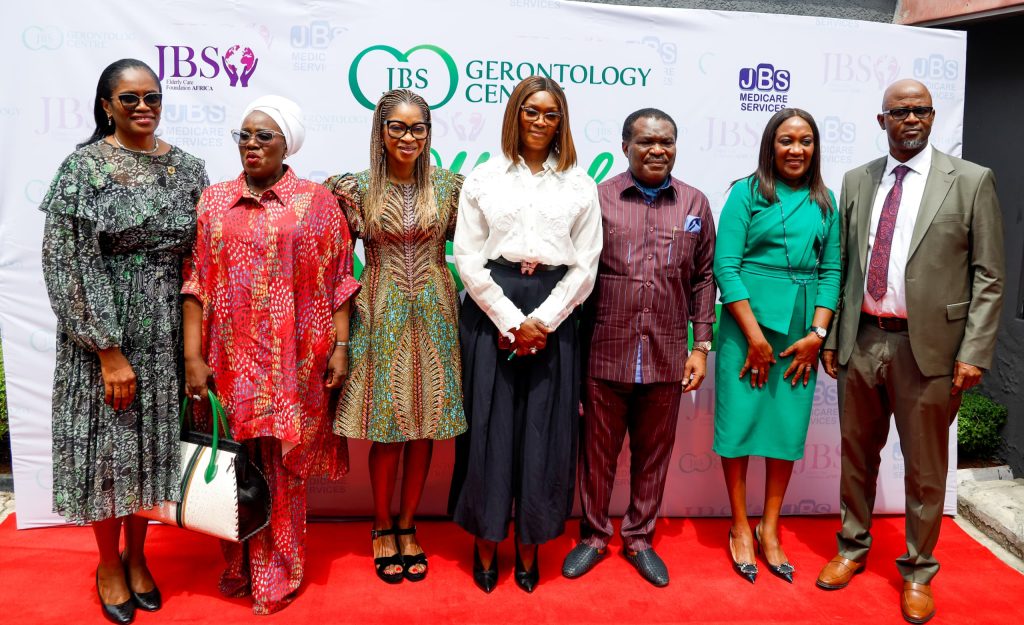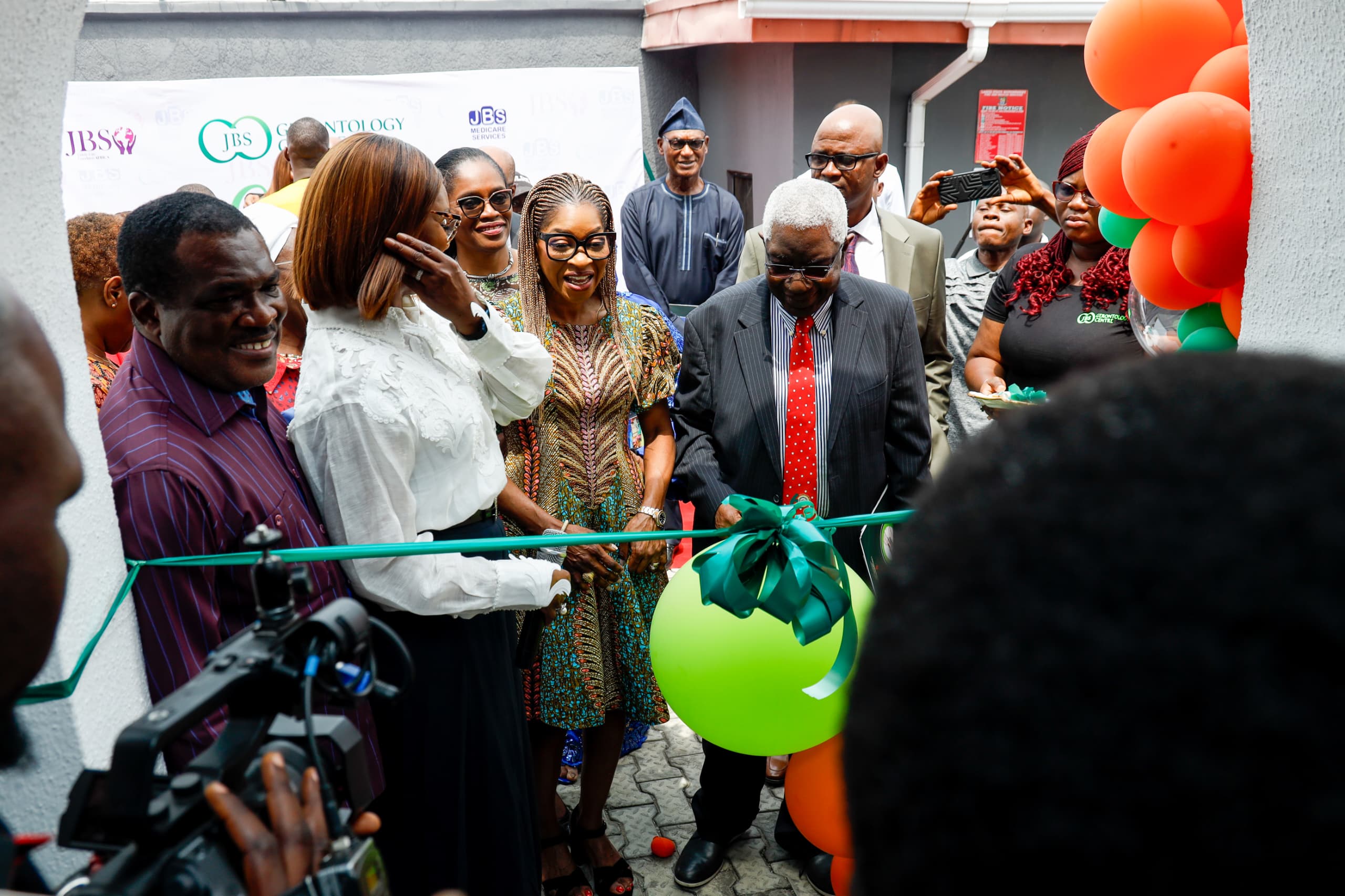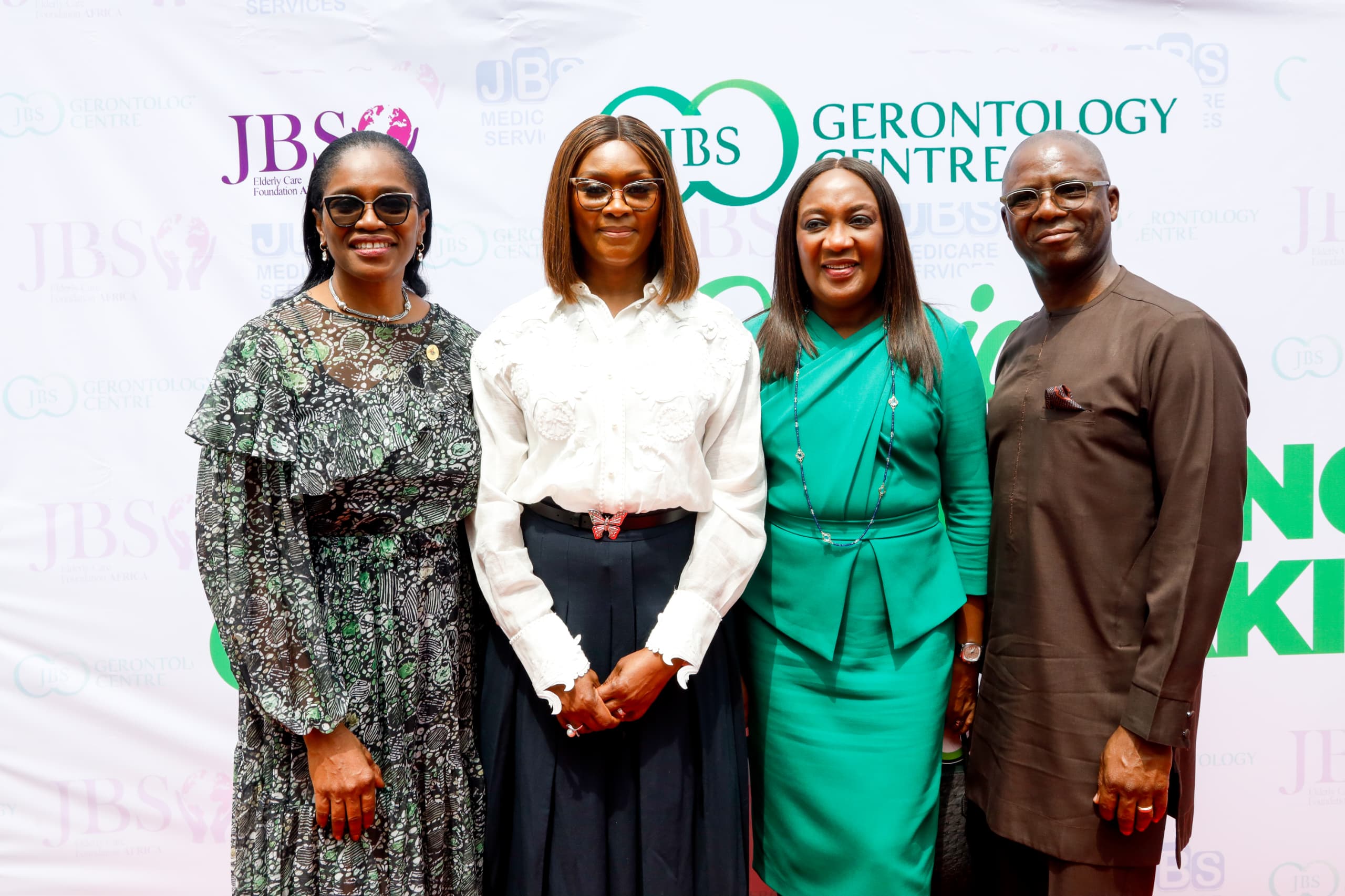Experts and stakeholders in the healthcare sector have called on the government to partner with the private sector in providing geriatric care for senior citizens in Nigerians.
The call was made on Wednesday in Lagos during the official inauguration JBS Gerontology centre. The centre is the first private geriatric centre in Nigeria, providing specialist geriatric healthcare for the elderly.
Speaking at the event the former Senate President, Senator Bukola Saraki said: “Private and public sectors should partner in providing healthcare for senior citizens. The government must begin to shift and look at applying resources towards geriatric funding.”
On Japa syndrome, Senator Saraki explained that it is a problem out of a big problem. What do you expect, you have a doctor qualified and being paid less than N200, 000 today and we are seeing other countries coming here for our talents. So, the only way is to first get the country sorted out. Get the conditions better. When I was Senate president, we tried one of the significant ways to increase funding and we are only spending 4.5% of the budget. We should be spending 15% of the budget. Until we do that and provide adequate funding for the health sector, they will go, let’s not get sentimental about that. What we need to do is to improve the condition that will keep them and that is a bigger picture. Address the economy, address security, it is not just the health issue and that is why we need to address it.”
Speaking during the occasion, the founder, JBS Gerontology Centre, Dr Olutoyin Ajala stated that government bodies need to invest in geriatric. “We have reached the point where the traditional settings grandparents and elderly ones are left alone while the kids are in the city or outside the country. Within the next 20 or 25 years, we will have an explosion of elderly people. We need to start doing the work now. Government and private stakeholders need to start investing in that future.
“We have a big problem, dementia is a huge burden right now in Nigeria much more than people are aware of because a lot of this is behind closed doors, people don’t want to come outside and say. So, we see it a lot. We need to start investing in that for all of us, for all of our futures,” Dr Ajala added.
Commending Dr Ajala for establishing the centre, the first lady of Ogun State, Bamidele Abidoun said: “It is a fantastic initiative. There is going to be an explosion in the next 20 or 25 years and we need to provide care for the elderly. We need to invest in that and we are calling on both private and public sectors to invest in our future.”
Explaining further Mrs Abidoun said: “It is important to recognize the demographic shift around the world. Africa has a young population, but this does not mean that our parents and grandparents have passed away. Millions of them are still with us.
“With the increasing life expectancy, the population of the elderly will continue to grow. How we approach and prioritize healthcare services for our seniors is therefore a very important part of our health indicator for our nation. It is against this backdrop that this JBS centre will provide support not only for the elderly who can afford it but also for indigent older individuals who often find themselves unable to afford essential healthcare during their retirement years.”
Speaking on what the state government is doing to cater for the health needs of senior citizens, the commissioner of health, Lagos State, Prof Akin Abayomi said that in keeping with the achievement of universal healthcare coverage and health insurance, we are seeing that people are beginning to live much longer in Lagos and to some extent across Nigeria. That is a testament to the fact that the healthcare system is improving. As we start to see more people getting to 80, 90 and 100 and that demographic profile changing, the government have recognised this shift. We have integrated the care of the elderly in our 30 general hospitals and teaching hospitals. We also recognize that we have to establish at least one or two of our general hospitals and our primary healthcare platforms to specialize in the care of the elderly.”






Leave a reply